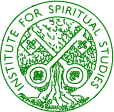
|
|
Monica Furlong, 1930–2003:
|
Seminar delivered by Linda Walter on September 21, 2006On Thursday the 21st of September, the Institute for Spiritual Studies was given a personal insight into the life of this witty, tender woman and her fierce love of life. Linda Walter, whose life and faith have been nourished by Monica's writings and by the friendship they enjoyed, described Monica Furlong as living "joyfully right in the think of it." She was not a stylist, nor a great 'literary' writer. Rather her gift lay in an unusual ability to write with a fresh and persuasive clarity about the religious dimensions of the simple, deep things of ordinary living — dimensions too seldom considered the stuff of accessible, popular books. In her youth, the original and influential priest Joost De Blank (later to become Archbishop of Capetown) was appointed to Monica's parish. His was a passionate vision of religion. He taught Monica that Christianity is not primarily about morality, and through him she discovered a new understanding of faith, and of religion as the container that holds us within the hands of the living God. In the midst of mental suffering, she came to see how everything is patterned; that Christ is our pattern, and that we are in some way patterned in Christ: our lives are Christ's. In her searching, Monica chose to be utterly true to her own experience and found that her own experience resonated with the Christian faith. A prolific writer, whose career began as a Fleet Street journalist, Monica has over thirty published books to her name. Her work includes novels, biographies, poetry, spirituality, children's fiction, and a large body of writing that was, and continues to be, influential in getting the Church of England — and the Anglican Communion at large — to face its own misogyny and homophobia and the far-reaching consequences of both. In the last twenty years of her life, even in the final two years of her terminal cancer, Monica gave cheerfully of her energy, time and talents to campaign for the ordination of women. Not becasue she herself felt any call to the priesthood, but because she saw, in the church's prohibition against women touching the body of Christ at the altar, a grave miscarriage of justice stemming from a misunderstanding of Christianity itself. She visited Australia several times in these years. In her autobiography, Bird of Paradise (Mowbray 1995), Monica wrote: I have had enormous joy from living within the Christian myth — it has helped me, a naturally timid person, to be bolder, more high-spirited, ruder, funnier, and to deal better with pain. I think I have laughed more than I might have done otherwise.... There is an irony inseperable from religion — due to the incongruity of nature and divinity — that I enjoy immensely. Maybe irony is the distinctive quality of religious people.... I know it can give a merciful perspective, and that religion is at its most ugly and dangerous when it cannot achieve that perspective... Above all, the sense of mystery, the Other, has given a tang to life which I believe many would like to own up to if 'directed thinking' did not have them bound and gagged, robbed of the chance to explore what theologians and churchmen do not think good for them. The moments when across the landscape are symbols of the timelessness of the sacred in our time-bound and ego-ridden lives — they indicate the transformation which is what religion has been, and might yet be about. Linda expressed her appreciation to the ISS for their interest in Monica Furlong, whose distinctive voice is one she believes the church can ill afford to lose. A small selection of recommended reading:
This site is hosted by St Peter's Eastern Hill,
Melbourne, Australia. |